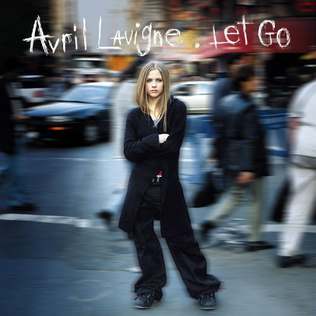The magic of music, memory, and how we still remember lyrics decades later
Songs from our lives are deeply etched into our minds, lingering for many years after we’ve listened to them. Ellie Harrison asks the experts why this is – and why even people with dementia can often remember music so well


Your support helps us to tell the story
From reproductive rights to climate change to Big Tech, The Independent is on the ground when the story is developing. Whether it's investigating the financials of Elon Musk's pro-Trump PAC or producing our latest documentary, 'The A Word', which shines a light on the American women fighting for reproductive rights, we know how important it is to parse out the facts from the messaging.
At such a critical moment in US history, we need reporters on the ground. Your donation allows us to keep sending journalists to speak to both sides of the story.
The Independent is trusted by Americans across the entire political spectrum. And unlike many other quality news outlets, we choose not to lock Americans out of our reporting and analysis with paywalls. We believe quality journalism should be available to everyone, paid for by those who can afford it.
Your support makes all the difference.Perusing the Glastonbury lineup this year, I was struck by two things. First, the sheer number of nostalgia acts, from Avril Lavigne and Keane to Sugababes and Corinne Bailey Rae. Second, the fact that I can sing, off by heart, every lyric to each of their greatest hits – despite not having listened to any of them in years.
Here I should say that I have a terrible grasp of pitch – and a rubbish memory. My recollection of whole holidays, books I’ve read, and even breakup conversations have slipped through the sieve of my brain, into a bottomless sink of forgetfulness, never to be found again.
Of course, I’m not the only one who can somehow recall music above so much else. To this day, my friends can and will belt out every word to Natasha Bedingfield’s 2004 banger “Unwritten” on a long car journey. And my grandma, who has Alzheimer’s, can be heard crooning along to Fifties love songs, even as she struggles to identify her grandchildren. So, what’s so special about music?
It’s partly down to “pure familiarity”, explains Kelly Jakubowski, associate professor from Durham University’s department of music. “We listen to the same music over and over, many more times than we read the same book or watch the same movie. This extreme overexposure to the same song lots of times can strengthen the memory trace.” And even though we might have last heard a song 20 years ago, we probably played it on repeat at the time. This repetition effect also applies, unfortunately, to getting lyrics wrong. If, when listening to Abba, you’ve sung “feel the beat on the tangerine” enough times, you’ll find it near impossible to ever land on the correct line: “Feel the beat on the tambourine.”
Another factor in why songs are so memorable is the “emotionality” of music. “Research in psychology shows that emotional things are remembered better than non-emotional things,” says Jakubowski. It’s not only the emotions that the music itself is expressing – from the aching melancholy of Jeff Buckley to the galvanising energy of Aretha Franklin – but also the deep emotions we have in response to the music, or the situations that surround it, such as a funeral or a party. “Deeper emotional processing of a stimulus also facilitates deeper encoding in the mind,” Jakubowski adds. By this she means, the more memorable the situation, the more likely you are to remember the song that was playing in the background.

The final factor, which links back to emotionality, is that when listening to music, more than one part of your brain lights up. “It’s not just an auditory cortex,” says Jakubowski, “you also have these emotion-related areas in the brain being activated.” Motor regions, too, switch on. “People remember the movements and recall wanting to dance along to it,” she says. “Music activates this quite wide range of regions across the brain implicated in memory, but also in emotion, movement, reward sensitivity and so on.”
It’s thanks to this “deep encoding” that some people with dementia are extraordinarily able to recall a tune even when all else seems to have slipped away. In 2020, a video went viral of a former ballerina lighting up and fluttering her arms upon hearing a melody from Tchaikovsky’s Swan Lake. Earlier this year, my grandma gripped my hand and softly sang every word of Ella Fitzgerald’s “Someone to Watch Over Me” as it played at my grandad’s funeral. But as we left the ceremony, she became confused that her husband of six decades wasn’t walking by her side, and looked back through the doors, asking me where he was.
Sarah Metcalfe, who heads up the Music for Dementia campaign, has witnessed many moments like these with dementia sufferers. “For people who haven’t spoken for a really long time, for weeks or months, you can find the right song and they’ll suddenly start to sing,” she says, “and that can be really powerful for the families, because the abilities that they thought were gone suddenly come back.”
Music isn’t just important for those with dementia, she says, “it can also transform life for carers and for families who think that they’ve lost the person”. Metcalfe knows people who have started going to church for the first time in their lives because it’s the only time when they hear their parent’s voice. “They might not be speaking during the week but get them to church and an old hymn is deeply seated and rooted within them,” she says. “That’s really powerful, the power of being able to bring somebody’s voice back.”
And bring their moves back, too. Metcalfe has seen music’s impact on the motor cortex of the brain play out several times. “For some people with dementia, movement becomes very hard,” she says, recalling the story of one man who usually struggles to walk, but who, when listening to music, could dance in his living room on one leg. “It was captivating to see the look on his face, the freedom and the sense of joy that he had in that moment,” she says.

Not just any old song will do. Jakubowski explains that the strongest memories of music – and everything else – come from a certain period in our life, nicknamed the reminiscence bump. “It spans from around age 10 to 30 years old, depending on the study that you cite,” she says. “If you ask an older adult, ‘What are your most important memories from your life?’, or you give them random cues, such as ‘apple’, ‘doctor’, ‘table’, and ask them to think of a memory, they will disproportionately recall memories from that reminiscence bump period. Partially, this might be a biological thing – that we actually encode memories better during that time as it’s our optimal brain functioning period. But it’s also a key period in our identity formation, when we are becoming the people that we are.” She references Playlist for Life, a charity that helps family members and care staff not only find the right music for someone with dementia but learn how to harness its effects.
One man with dementia, Metcalfe recalls, suddenly began regaling his son with stories from his youth after hearing the music of a band he had seen live in concert as a teenager. “A lot of people don’t know that music can help, and then are dazzled when it does,” she says.
Not only are we likely to remember music from our own teenage and early adulthood years – but also that of our parents. “There’s this idea of the intergenerational reminiscence bump in music,” says Jakubowski, “where people also have a smaller, secondary bump for music from their parents’ teenage years, suggesting that their parents have imprinted on them the importance of a particular kind of music. So, you see this secondary bump of people liking music that essentially was released before they were born, but they have memories associated with it.” Finally, I think, an explanation for why I can never unsee my dad playing air guitar to Pink Floyd in the kitchen.
Music truly is masterful at unlocking other memories, no matter how small. Since we were children, we have used music as a mnemonic device: to learn the alphabet, list the US states, or remember how many days are in each month of the year. At the end of our lives, if we lose our memory, we might find ourselves returning to these techniques – people with dementia are sometimes played music with the melody of a familiar song like “Twinkle, Twinkle, Little Star” only with new lyrics specifically about their morning routine: washing their hair, brushing their teeth, getting dressed.
This all makes me wonder what kind of memories will bubble up when listening to Lavigne’s “Complicated” – the soundtrack to my own youth. I put it on. Immediately, I’m transported back to being 10 years old, holding the CD in my hands and looking at this blurry, grungy girl on the cover of Let Go. The lyrics are right there on my tongue (“I see the way you’re/ Actin’ like you’re somebody else, gets me frustrated”) and I remember exactly how I’d once imagined what it would be like to be in a tumultuous future relationship of my own – with an actual boy. The turquoise wallpaper of my bedroom flickers in my memory. Goosebumps.
Find out more about the Music for Dementia campaign here
Join our commenting forum
Join thought-provoking conversations, follow other Independent readers and see their replies
Comments